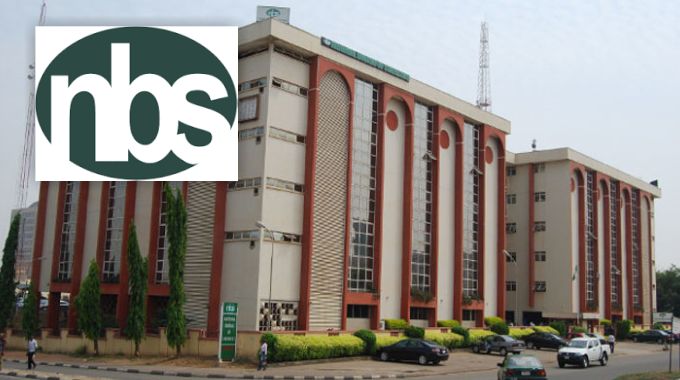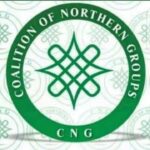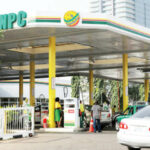By Abdullahi W. Yunusa
According to the National Bureau of Statistics (NBS), Nigeria’s unemployment figure currently stands at 33.3 per cent making her the highest on a global list of countries. Without mincing words, this is indeed a very depressing, disturbing and an alarming piece of information that should bother any discerning mind and whoever is interested in the peace, growth and development of our dear country.
In a recent publication by the NBS, the jobless rate in Nigeria rose to 33.3 per cent in the three months through December. That’s up from 27.1 per cent in the second quarter of 2020, the last period for which the agency released labour-force statistics. Nigeria’s jobless rate has more than quadrupled over the last five years as the economy went through two recessions.
As a matter of fact, how to curb rising unemployment in the country remains a very topical issue since Nigeria’s return to constitutional democracy in 1999. Successive governments, especially at the federal level have introduced different programmes and initiatives to achieve this noble objective, yet the situation hasn’t yielded significant results as millions of our population are still without jobs.
Like governments before it did, the President Muhammadu Buhari led government has introduced programmes such as the YOUWIN, MarketMoni, TraderMoni, N-Power and Social Investment Programme to serve as a stop-gap measure. Undoubtedly, these efforts have helped a great deal in taking some Nigerians off the street, but there is still a lot more to do in this regard, especially as our population keeps growing exponentially. The question on the lips of many remains; how do we address the looming job crisis in Nigeria?
According to the Executive Secretary, National Sugar Development Council, Mr. Zacch Adedeji, the nation’s sugar sub-sector has a lot to offer in terms of gainful employment and means of livelihood for Nigerians of all classes, levels and social stratification. Mr. Adedeji said the sugar sector remained one of the many untapped goldmines in Nigeria and that the sector is well-positioned to provide direct and indirect jobs for millions of our countrymen and women.
The National Sugar Development Council (NSDC) is currently implementing a 10-year policy document for the sugar industry titled; Nigeria Sugar Master Plan (NSMP). The NSMP is an ambitious sectorial policy initiative for the sugar industry whose cardinal objectives are to raise local production of sugar to enable Nigeria attain self-sufficiency, stem the tide of unbridled sugar importation, create a huge number of job opportunities for Nigerians as well as contribute to the production of ethanol and generation of electricity.
The justification for conceiving the sugar roadmap stems from the fact that the Nigeria Customs Service reveals that the country has spent a yearly average of approximately N30 billion on the importation of sugar over the last decade (as at 2008). Secondly, in 2009, 2010 and 2011, Nigeria expended N53.6 billion N73 billion and N101.9 billion, respectively, on sugar importation. Lastly, significant investments have been made in developing sugar refineries, all of which rely on imported raw sugar.
According to Mr. Adedeji, the Backward Integration Programme (BIP), component of the NSMP has the capacity to tackle rising unemployment and also address other socio-economic challenges facing the country. Three major sugar operators; Dangote Sugar Refinery, BUA Sugar Refinery and Golden Sugar Refinery are the companies implementing the BIP. These companies have employed hundreds of Nigerians working as factory and field workers.
The Dangote Sugar Refinery has its BIP sites in Numan, Adamawa State and in Tunga, Nasarawa state. The BUA Sugar Refinery’s BIP site is located in Lafiagi, Kwara state while that of the Golden Sugar Refinery is in Sunti, in Niger state. Expectedly, these BIP sites provide season and off-season jobs for hundreds of Nigerians within and outside their locations. In terms of direct jobs, these sugar estates depend on independent sugarcane out-growers for canes for their factory operations. A number of out-growers are on the payroll of these companies thereby improving the economic wellbeing of members of the host communities and those beyond.
The NSDC helmsman said the sugar sub-sector was the next available option that would take an appreciable chunk of our unemployed youths off the labour market.
Stakeholders in the sugar sector aren’t resting on their oars in terms of creating more opportunities for Nigerians to secure jobs. For instance, to address the lingering issue of skill-gap and dearth of skilled indigenous professionals in the sector, the federal government and major sugar operators came together to establish what is today known as the Nigeria Sugar Institute (NSI), Kwara State. The NSI exists to train and meet the professional needs of both factory and field operators in the industry. The institute would among other direct benefits provide jobs for skilled and unskilled workers and also boost the economy of the host community and its environs.
It isn’t all gloomy as it appears, especially as it relates to job creation for our teeming population. The sugar sector is upbeat and provides ample opportunity for people to secure gainful employment. While government and other stakeholders make concerted efforts to reduce Nigeria’s job deficit drastically, citizens must equally try their hands on productive ventures that require little capital. Equally important is the need for our youths to develop interest in agriculture and entrepreneurship.
Yunusa wrote from Abuja

 Join Daily Trust WhatsApp Community For Quick Access To News and Happenings Around You.
Join Daily Trust WhatsApp Community For Quick Access To News and Happenings Around You.


